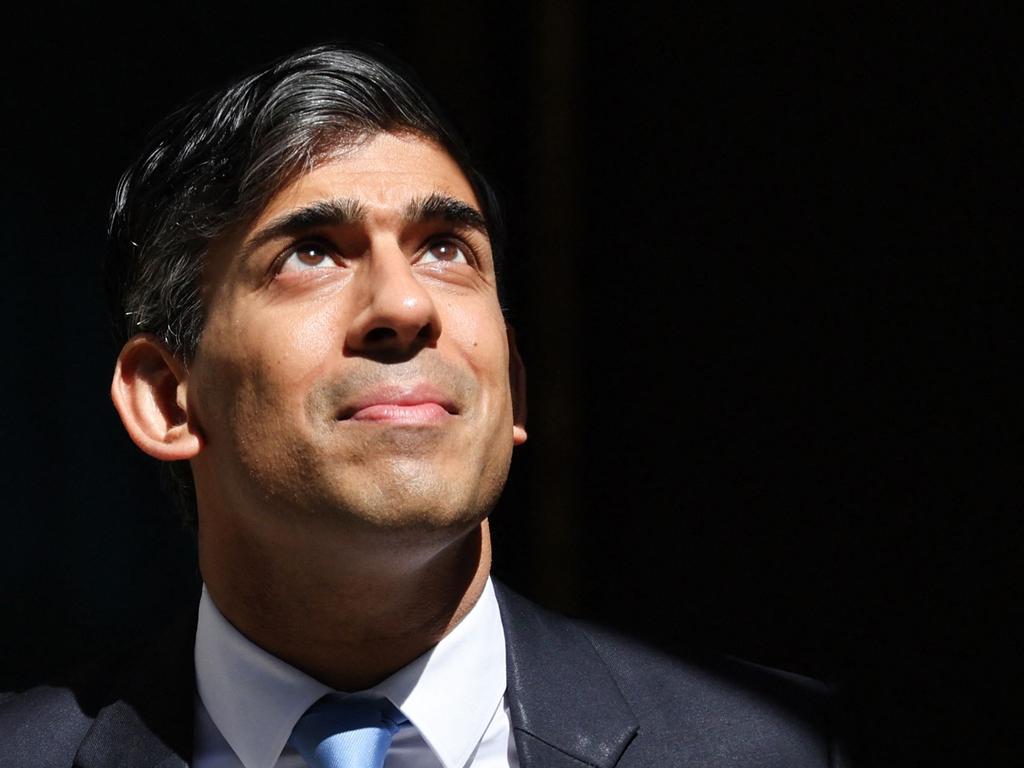Time to put disastrous Tory government out of its misery


Ever since Prime Minister Rishi Sunak stood in the rain as the heavens opened and announced an early election for July 4, the Tory campaign has gone from bad to worse. He has been a totally inept Prime Minister, massively out of his depth and his defeat could not come soon enough for Britons.
After 14 years of Conservative Party rule, with five prime ministers, beset by internal division, a litany of scandals and sleaze, a cascade of ministerial resignations, an utterly disastrous handling of the Covid pandemic, a near financial crisis and a ruinous exit from the European Union, it seems even Sunak cannot wait for it to end.
The prime ministers have, to varying degrees, been victims of Brexit. It was always going to make the UK economically weaker and diminish its global standing. But even those 51.89 per cent who voted “leave” in 2016 must concede the pound has lost value, immigration is higher, goods and services are more expensive, business regulations have increased, and critical skills shortages have damaged the economy.
David Cameron (2010-16), now back as Foreign Secretary, is the architect of party and country decline. His memoir, For the Record (2019), was essentially a mea culpa for his prime ministership. “There are many things I would do differently,” he acknowledged. “I am truly sorry.”
He plunged the UK into the Brexit mess with a referendum designed to soothe party divisions, and broke a promise to resign when it went pear-shaped.
Theresa May (2016-19) was initially characterised by some as the new Margaret Thatcher. In truth, she was a throwback to pre-1970s Toryism. May promised “strong and stable” leadership but delivered neither. Her mission was to deliver Brexit but she failed. Voters never really understood her or what she stood for. Her early election in 2017 – against Labour led by Jeremy Corbyn – resulted in a minority parliament.
Boris Johnson (2019-22) will always be remembered as a buffoon. His untidy appearance and mix of larrikinism and intelligence once earned him popular appeal, even among Labour voters. (I saw this charm on display when I interviewed him while he was mayor of London.) Johnson won a landslide election victory in 2019. He dreamt of emulating his hero, Winston Churchill. But he squandered it all.
His handling of the pandemic was among the worst in the world. I was in London when it first went into lockdown and saw the shambolic response first-hand. The “partygate” scandal, breaking lockdown rules to attend Downing Street parties, led to Johnson’s resignation. He lied to the House of Commons, gave unlawful advice to the queen to prorogue parliament, and tried to cling to power as his government crumbled around him.
Liz Truss (2022), infamously, did not last longer than a lettuce as prime minister. Her bizarre 49 days was the shortest tenure in British history. Her radical mini budget, with unfunded tax cuts and economic deregulation proposals, wreaked further economic damage to Britain and put the country on the brink of a financial crisis.
Sunak (2022-24) has demonstrated he is not fit to be Prime Minister. He had every opportunity, as the fifth prime minister in eight years, to try to turn the government’s fortunes around. But he has only made it worse. Voters just do not like him or respect him. He has a dismal approval rating of 21 per cent and a whopping disapproval rating of 72 per cent, according to YouGov.
The problems for the Conservatives go deeper than leadership or Brexit. It has been a government crippled by internal squabbling, sleaze and instability. For many Tory supporters, it has not been a government cut from the same mould as Churchill or Thatcher. Indeed Cameron, May, Johnson, Truss and Sunak pale in insignificance compared to those giants.
This has helped give that supreme fool, Nigel Farage, yet another lifeline in British politics. Few politicians are more reviled than Farage. He has a disapproval rating of 61 per cent and an approval rating of just 29 per cent, according to YouGov. Yet his brand of far-right populism, trading in fear and grievance, with a toxic mix of xenophobia and sexism, has appeal.
This election risks putting the Conservative Party on the path to extinction. It has fallen behind Farage’s Reform Party in the polls, with just 18 per cent voter support. (Labour’s primary vote is more than twice that.) Even more worrying is that only 8-10 per cent of voters aged between 18 and 39 plan to vote Conservative. It is losing its constituency.
There have been glimmers of hope for Sunak. Inflation has fallen and interest rates have stabilised, the economy is showing a slight uptick and his Rwanda refugee deportation scheme is now law. He talks about “bold ideas”. Yet his idea for national service for 18-year-olds had been ruled out days before. It is emblematic of 14 years of policy ineptitude and political chaos.
The snap early election called by Sunak was a monumental gamble, his last hope of staving off defeat. It has only served to hasten the demise of the government he leads. Polling that shows the Conservatives a mile behind has hardly changed for years. The good voters of Britain cannot wait for judgment day and to see the back of this dysfunctional and dreadful government.






The UK election is likely to result in an event as equally astonishing as a landslide victory for Sir Keir Starmer’s Labour Party and a return to power after 14 years in the political wilderness. It is also expected to be the worst result for the Conservative Party in a century, with the party’s future as a viable political force at stake.